 Your new post is loading...
 Your new post is loading...

|
Scooped by
Gust MEES
|
Harassment covers a wide range of behaviors of an offensive nature. It is commonly understood as behavior that demeans, humiliates or embarrasses a person, and it is characteristically identified by its unlikelihood in terms of social and moral reasonableness. In the legal sense, these are behaviors that appear to be disturbing, upsetting or threatening.

|
Scooped by
Gust MEES
|
Hubris (, from ancient Greek ) describes a personality quality of extreme or foolish pride or dangerous overconfidence, often in combination with (or synonymous with) arrogance. In its ancient Greek context, it typically describes behavior that defies the norms of behavior or challenges the gods, and which in turn brings about the downfall, or nemesis, of the perpetrator of hubris.

|
Scooped by
Gust MEES
|
Kids do crazy things, but we expect more from grown-ups, don’t we? Unfortunately, that’s not always the case. Folks scream obscenities at ballgames, bully people on social media, and treat others with total disrespect. If you think this behavior is rude, insensitive, and tasteless, you’re right. But why is it so prevalent? The truth is, some people behave this way for personal gain; some folks don’t know better; and others know they’ll get away with it — because they have in the past. Some grown-ups never grow up.
While some indiscretions were once considered outlandish, we’ve become desensitized to these actions. It’s troubling that some of this behavior could have been avoided, but too many of us didn’t speak up. Instead, we closed our eyes to the poor behavior and waited for others to make the first move. The consequence is that wrongs committed by enough people become the norm over time. We have no one to blame except ourselves.
As leaders, role models, and parents, we must utilize every opportunity to reinforce the values that we hold dear.
What Values Do You Cherish?
Are polite manners a thing of the past? Should people honor their word? Is it Pollyanna to expect people to do what’s right? I think not! But if we don’t promote good values, don’t be surprised when bad ones become the norm. “How do we improve the situation?” you ask.
First, we must modify our criterion of excellence. It’s not what you have but who you are that counts. Moral character matters! Learn more / En savoir plus / Mehr erfahren: https://www.scoop.it/t/21st-century-learning-and-teaching/?&tag=Frank+SONNENBERG http://www.scoop.it/t/21st-century-learning-and-teaching/?&tag=Character http://www.scoop.it/t/21st-century-learning-and-teaching/?q=ethics https://www.scoop.it/t/21st-century-learning-and-teaching/?tag=Values http://www.scoop.it/t/21st-century-learning-and-teaching/?tag=Growth+Mindset

|
Scooped by
Gust MEES
|
THINKING CLASSROOM PHILOSOPHY IN 4 QUESTIONS What ?
Teach learners how to think and learn Discover, value and use learners' strengths and interests
Combine the best new educational practices with the best traditional ones
Build and enrich learning relationships
Develop growth mindset characteristics and grit Why ?
Because learners need knowledge, flexible skills and grit to succeed
Because future economic & life success depends on skills and creativity
Because everyone learns in a unique way
Because education must continually prepare learners for an exciting but uncertain future
Because of Article 13a, UN Convention on the Rights of the Child How ?
By continually increasing the effectiveness of teaching
By teaching for character as well as content
By valuing each learner for what they do well
By educating for skills, character and values as well as knowledge
By preparing learners for their futures not our pasts
By valuing, supporting and resourcing all educators What if...
All learners were engaged, excited and interested in their lessons?
'School' evolved to match different lifestyles and different learning styles?
Teachers had time to enjoy their profession and real opportunities to thrive?
There was only one initiative and it was called "Learning"? Learn more / En savoir plus / Mehr erfahren: https://www.scoop.it/t/21st-century-learning-and-teaching/?&tag=Soft+Skills http://peterliljedahl.com/wp-content/uploads/Building-Thinking-Classrooms-Feb-14-20151.pdf

|
Scooped by
Gust MEES
|

|
Scooped by
Gust MEES
|
If you define winning as getting the upper hand, backing your opponent into a corner, and winning at any expense, you’ve got it all wrong. You may win in the short term, but think about the relationship going forward. Do those actions build trust, teamwork, and respect? I think not. You’ve probably created enough animosity, distrust, and jealousy to last a lifetime. In other words, you may have won the battle, but lost the war. There’s a better way…winning doesn’t have to be at someone’s expense.
Compromise: A Win-Win Strategy
Some people need to win at all costs because their ego won’t accept anything less. They’d rather win personally than accomplish something meaningful. Compromise isn’t a synonym for surrender; it’s a winning battle plan. Learn more / En savoir plus / Mehr erfahren: http://www.scoop.it/t/21st-century-learning-and-teaching/?&tag=Win-Win-Situation http://www.scoop.it/t/21st-century-learning-and-teaching/?&tag=Frank+SONNENBERG

|
Scooped by
Gust MEES
|
Bigger issues: #1. Unfairness is necessary. Giving second chances, for example, isn’t fair to those who perform on schedule and within expectation. But, not giving second chances is cruel. #2. Fairness is merciless. Mercy is not getting what you deserve. In other words, mercy isn’t fair. #3. Equal opportunity must include reward or lack of reward. Those who seize opportunities earn reward. Those who don’t seize opportunities don’t earn reward. It’s important to note that it’s not necessary to punish those who don’t seize opportunity. Rewarding teams always includes some unfairness.
#4. Fairness – treating everyone the same – de-motivates high achievers and rewards low performers. #5. Fairness, when it means everyone is treated the same, promotes inaction. If you can’t be do something for everyone then you can’t do it for anyone. The result is you don’t do much. Learn more / En savoir plus / Mehr erfahren: http://www.scoop.it/t/21st-century-learning-and-teaching/?&tag=Counterfeit+Leadership http://www.scoop.it/t/21st-century-learning-and-teaching/?&tag=Growth+Mindset

|
Scooped by
Gust MEES
|

|
Scooped by
Gust MEES
|

|
Scooped by
Gust MEES
|
Prejudice is an affective feeling toward a person or group member based solely on their group membership. The word is often used to refer to preconceived, usually unfavorable, feelings toward people or a person because of their sex, gender, beliefs, values, social class, age, disability, religion, sexuality, race/ ethnicity, language, nationality, beauty, occupation, education, criminality, sport team affiliation or other personal characteristics.
Another contemporary theory is the integrated threat theory (ITT), which was developed by Walter G Stephan.[14] It draws from and builds upon several other psychological explanations of prejudice and ingroup/outgroup behaviour, such as the realistic conflict theory and symbolic racism.[15] It also uses the social identity theory perspective as the basis for its validity; that is, it assumes that individuals operate in a group-based context where group memberships form a part of individual identity. ITT posits that outgroup prejudice and discrimination is caused when individuals perceive an outgroup to be threatening in some way. ITT defines four threats: - Realistic threats
- Symbolic threats
- Intergroup anxiety
- Negative stereotypes
Learn more / En savoir plus / Mehr erfahren: http://www.scoop.it/t/21st-century-learning-and-teaching/?&tag=Character

|
Scooped by
Gust MEES
|
Mentally strong people have healthy habits. They manage their emotions, thoughts, and behaviors in ways that set them up for success in life. Check out these things that mentally strong people don’t do so that you too can become more mentally strong. Learn more / En savoir plus / Mehr erfahren: http://www.scoop.it/t/21st-century-learning-and-teaching/?tag=Strong+Will

|
Scooped by
Gust MEES
|

|
Scooped by
Gust MEES
|
Why are some people so much better at expressing empathy than others?
Psychologists define empathy as sensitivity to the emotions, both positive and negative, of other people. You can feel empathic—or empathetic (the two words are used interchangeably)—to someone who is feeling positive feelings, such as amusement or joy, in addition to someone who is feeling sadness or anger. “Empathy is being in the heart of another person,” says Susan Kuczmarski, a cultural anthropologist and adjunct faculty member in the executive education program at Northwestern University’s Kellogg School of Management.
Researchers have determined that people react in one of two ways when faced with another person’s emotions. Sometimes people respond with “empathic concern” or caregiving. They see themselves as a source of comfort or support for the other person.
But sometimes people feel threatened by the other person’s emotions and focus instead on themselves. They might try to help, to minimize their own discomfort. Typically they distance themselves. Psychologists call this response “empathic distress.” Learn more / En savoir plus / Mehr erfahren: http://www.scoop.it/t/21st-century-learning-and-teaching/?tag=Empathy http://www.scoop.it/t/21st-century-learning-and-teaching/?tag=Soft+Skills
|

|
Scooped by
Gust MEES
|
The word decadence, which at first meant simply "decline" in an abstract sense, is now most often used to refer to a perceived decay in standards, morals, dignity, religious faith, honor, discipline, or skill at governing among the members of the elite of a very large social structure, such as an empire or nation state.
The word decadence, which at first meant simply "decline" in an abstract sense, is now most often used to refer to a perceived decay in standards, morals, dignity, religious faith, honor, discipline, or skill at governing among the members of the elite of a very large social structure, such as an empire or nation state. By extension, it may refer to a decline in art, literature, science, technology, and work ethics, or (very loosely) to self-indulgent behavior.
Usage of the term sometimes implies moral censure, or an acceptance of the idea, met with throughout the world since ancient times, that such declines are objectively observable and that they inevitably precede the destruction of the society in question; for this reason, modern historians use it with caution. The word originated in Medieval Latin (dēcadentia), appeared in 16th-century French, and entered English soon afterwards. It bore the neutral meaning of decay, decrease, or decline until the late 19th century, when the influence of new theories of social degeneration contributed to its modern meaning.
In literature, the Decadent movement—late nineteenth century fin de siècle writers who were associated with Symbolism or the Aesthetic movement—was first given its name by hostile critics. Later it was triumphantly adopted by some of the writers themselves. The Decadents praised artifice over nature and sophistication over simplicity, defying contemporary discourses of decline by embracing subjects and styles that their critics considered morbid and over-refined. Some of these writers were influenced by the tradition of the Gothic novel and by the poetry and fiction of Edgar Allan Poe. Learn more / En savoir plus / Mehr erfahren: https://www.scoop.it/t/21st-century-learning-and-teaching/?&tag=Frank+SONNENBERG http://www.scoop.it/t/21st-century-learning-and-teaching/?&tag=Character http://www.scoop.it/t/21st-century-learning-and-teaching/?q=ethics https://www.scoop.it/t/21st-century-learning-and-teaching/?tag=Values http://www.scoop.it/t/21st-century-learning-and-teaching/?tag=Growth+Mindset

|
Scooped by
Gust MEES
|
Behavior changes in people doesn't just happen from one day to the next. Changes in this area takes time - and often, the motto: "You can´t teach an old dog new tricks" applies. Nevertheless - the situation is not hopeless and people are capable of change and are often willing to do so. You are likely to achieve the desired success, if you consider the following four "change levers":
Attitude & Motivation
Knowledge & Skills
Structures & Processes
Role Models & Culture
Learn more / En savoir plus / Mehr erfahren: https://www.scoop.it/t/21st-century-learning-and-teaching/?&tag=change

|
Scooped by
Gust MEES
|
When we were growing up, our teachers saluted great individuals who changed the course of history; during dinnertime, our parents lovingly recalled their idols; and of course, we had our own personal heroes who walked on water. They were wonderful role models.
Martin Luther King, Princess Diana, Leonard Bernstein, Walter Cronkite, Colin Powell, Helen Keller, Ronald Reagan, Bill Gates, John Kennedy, Vince Lombardi, Steve Jobs, the Beatles, Tim Russert, John Glenn, Mother Teresa . . . to name a few.
There was something about these role models that made them special. They led by example, raised the bar for us, and were simply the best of the best. We might have even wanted to be them, someday.
We looked up to them, and to other role models, because of their accomplishments, such as overcoming obstacles to achieve greatness, speaking up when no one else would, living rags-to-riches stories, being poster children for honesty and integrity, putting others’ needs ahead of their own, and fighting tirelessly for causes they believed in. Many of these role models changed our world . . . forever.
I know it’s a generality, but would you be proud if your kids followed in the footsteps of many of today’s politicians, professional athletes, Hollywood celebrities, or pop musicians? There’s no need to mention them by name. You know who I’m talking about. Sure, there are some wonderful role models to celebrate, but too many of today’s public figures are train wrecks –– purveyors of greed, recklessness, or dishonesty. Too often they’re excused for drug and alcohol abuse, marital infidelity, and personal arrogance as we sit mesmerized by their fame. Need I say more?
I’m not suggesting that role models have to be saints, but let’s get real. Many executives can’t tell the difference between right and wrong until they’re caught, many politicians appear to treat integrity as a liability, and celebrities live so close to the edge that many are in danger of falling off. Shame? Disgust? Public outrage? Nope. . . Too many journalists are no longer interested in reporting the facts; they’re more concerned with ratings, shaping the news, or giving cover to those who subscribe to their personal views. Obviously, there’s a void that needs to be filled. Learn more / En savoir plus / Mehr erfahren: https://www.scoop.it/t/21st-century-learning-and-teaching/?&tag=LeaderShip https://www.scoop.it/t/21st-century-learning-and-teaching/?&tag=Frank+SONNENBERG

|
Scooped by
Gust MEES
|
“But we’ve always done it that way” is the comfortable, regular, and normal barrier to enacting change. And, our reluctance to change — in our personal and our professional lives — not only limits progress, it also prizes old ways of doing and being that, by design, were exclusive. When we rely on the ways we have always done it, likely we are also relying on our past efforts, and history on many fronts tells us that our past efforts weren’t the most inclusive or equitable. Learn more / En savoir plus / Mehr erfahren: https://gustmees.wordpress.com/2017/06/02/still-following-we-have-always-done-it-this-way-or-already-on-growth-mindset/

|
Scooped by
Gust MEES
|

|
Scooped by
Gust MEES
|
Carlo Maria Cipolla, an economic historian, is famous for his essays about human stupidity, such as "The Basic Laws of Human Stupidity". He viewed stupid people as a group, more powerful by far than major organizations such as the Mafia and the industrial complex, which without regulations, leaders or manifesto nonetheless manages to operate to great effect and with incredible coordination.
Stupidity is a quality or state of being stupid, or an act or idea that exhibits properties of being stupid.[6] In a character study of "The Stupid Man" attributed to the Greek philosopher Theophrastus (c. 371 – c. 287 BC), stupidity was defined as "mental slowness in speech or action". The modern English word "stupid" has a broad range of application, from being slow of mind (indicating a lack of intelligence, care or reason), dullness of feeling or sensation (torpidity, senseless, insensitivity), or lacking interest or point (vexing, exasperating). It can either imply a congenital lack of capacity for reasoning, or a temporary state of daze, or slow-mindedness.
In Understanding Stupidity, James F. Welles defines stupidity this way: "The term may be used to designate a mentality which is considered to be informed, deliberate and maladaptive." Welles distinguishes stupidity from ignorance; one must know they are acting in their own worst interest. Secondly, it must be a choice, not a forced act or accident. Lastly, it requires the activity to be maladaptive, in that it is in the worst interest of the actor, and specifically done to prevent adaption to new data or existing circumstances."[7] Learn more / En savoir plus / Mehr erfahren: http://www.scoop.it/t/21st-century-learning-and-teaching/?&tag=Character http://www.scoop.it/t/21st-century-learning-and-teaching/?&tag=Growth+Mindset

|
Scooped by
Gust MEES
|
Everyone is born with the potential for greatness. What happens next is up to you. You get to choose which path you take, how high to set the bar for yourself, and how hard you’re willing to work to clear it. You get to decide how to spend your time, who to spend it with, and what you’re willing to forgo when time runs short. Every choice that you make and every action that you take has consequences, but who better to decide what’s best for you –– than you. It’s your life to live. Own it! Securing the ultimate prize takes strength and courage. You’re going to face challenges that seem insurmountable and suffer setbacks along the way, but faith, hard work, and determination will see you through. Don’t listen to naysayers or allow others to lead you astray; follow your heart and let your dreams lead the way. You owe it to yourself to be the best you can be. You’ll travel this road only once. Believe in yourself and make yourself proud. There are no dress rehearsals in life. Learn more / En savoir plus / Mehr erfahren: http://www.scoop.it/t/21st-century-learning-and-teaching/?&tag=Character http://www.scoop.it/t/21st-century-learning-and-teaching/?&tag=Frank+SONNENBERG

|
Scooped by
Gust MEES
|
Does the character of our leaders matter? According to research done by KRW International it really, really, does!
Welcome to a Leadership Channel Podcast on TotalPicture. Joining Peter Clayton today is Fred Kiel, PhD, co-founder of KRW International, the author of Return On Character. For more than thirty years, he has helped Fortune 500 CEOs and senior executives build organizational effectiveness through leadership excellence and mission alignment. Strategy+Business considers Return on Character one of the best business books of 2015.
With Credit Suisse replacing their CEO after years of fines and the future of companies like Uber and Yahoo! being questioned because of bad CEO behavior, (or the current CEO poster boy, infamous former Turing CEO Martin Shkreli), could this be the wakeup call we need to start measuring how the character of a leader impacts their organization's performance?
For the first time we now have data to measure the correlation. In Return On Character (Harvard Business Review Press,), the findings are revealed from KRW International's seven-year study on the financial impact of character. Learn more / En savoir plus / Mehr erfahren: http://www.scoop.it/t/21st-century-learning-and-teaching/?&tag=LeaderShip http://www.scoop.it/t/21st-century-learning-and-teaching/?&tag=LeaderSkills http://www.scoop.it/t/21st-century-learning-and-teaching/?&tag=Character http://www.scoop.it/t/21st-century-learning-and-teaching/?&tag=Soft+Skills Check also: - http://www.scoop.it/t/21st-century-learning-and-teaching?tag=Emotional-Intelligence - http://www.scoop.it/t/21st-century-learning-and-teaching?tag=Emotions-and-Learning - http://www.scoop.it/t/21st-century-learning-and-teaching?tag=Empathy - http://www.scoop.it/t/21st-century-learning-and-teaching?tag=EQ - http://www.scoop.it/t/21st-century-learning-and-teaching?tag=Daniel-GOLEMAN

|
Scooped by
Gust MEES
|
In social psychology, a stereotype is a thought that can be adopted about specific types of individuals or certain ways of doing things. These thoughts or beliefs may or may not accurately reflect reality. However, this is only a fundamental psychological definition of a stereotype.
Stereotypes, prejudice, and discrimination are understood as related but different concepts.[8][9][10][11] Stereotypes are regarded as the most cognitive component and often occurs without conscious awareness, whereas prejudice is the affective component of stereotyping and discrimination is one of the behavioral components of prejudicial reactions.[8][9][12] In this tripartite view of intergroup attitudes, stereotypes reflect expectations and beliefs about the characteristics of members of groups perceived as different from one's own, prejudice represents the emotional response, and discrimination refers to actions.[8][9] Although related, the three concepts can exist independently of each other.[9][13] According to Daniel Katz and Kenneth Braly, stereotyping leads to racial prejudice when people emotionally react to the name of a group, ascribe characteristics to members of that group, and then evaluate those characteristics.[10] Possible prejudicial effects of stereotypes[3] are: - Justification of ill-founded prejudices or ignorance
- Unwillingness to rethink one's attitudes and behavior towards stereotyped groups
- Preventing some people of stereotyped groups from entering or succeeding in activities or fields[14]
Learn more / En savoir plus / Mehr erfahren: http://www.scoop.it/t/21st-century-learning-and-teaching/?&tag=Character

|
Scooped by
Gust MEES
|

|
Scooped by
Gust MEES
|

|
Scooped by
Gust MEES
|
|




 Your new post is loading...
Your new post is loading...





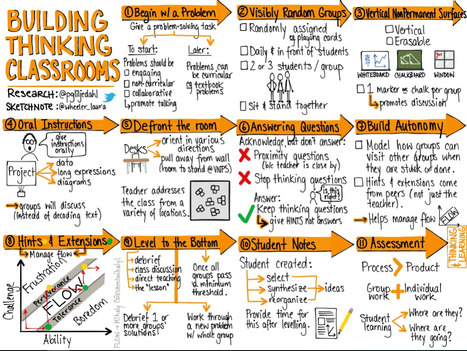
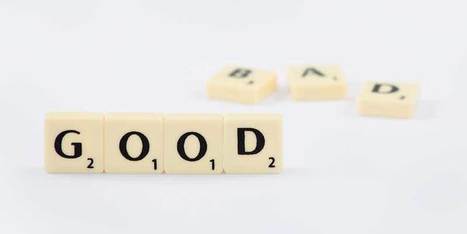

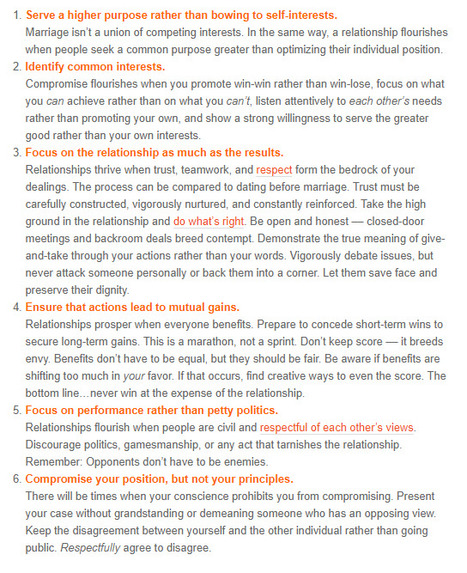
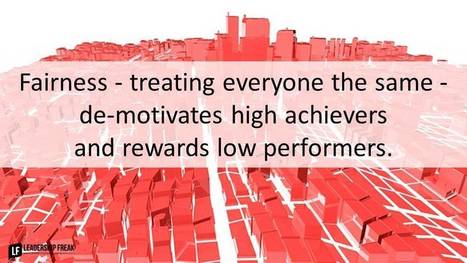

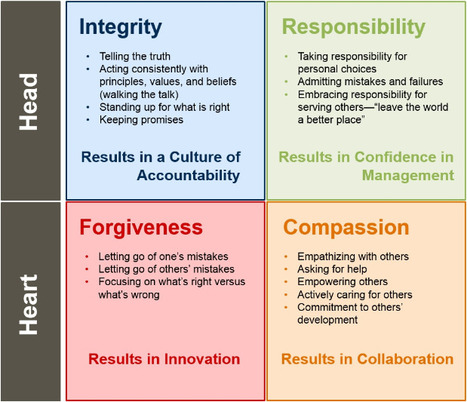



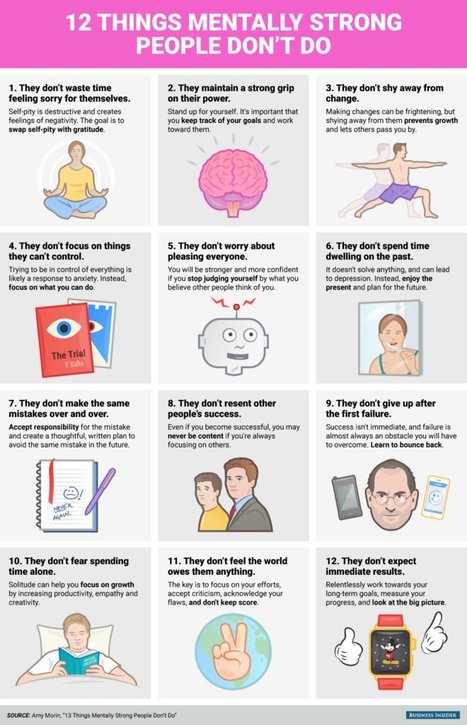



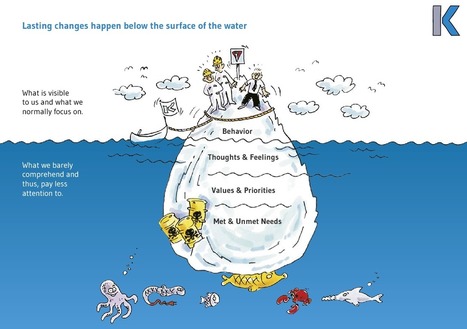



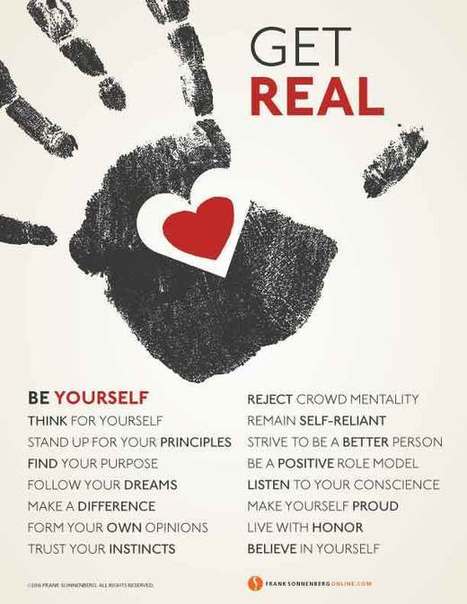




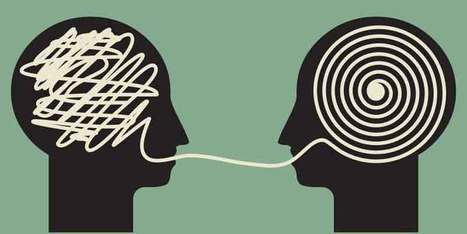
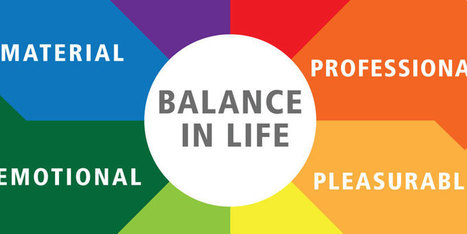






Learn more / En savoir plus / Mehr erfahren:
https://www.scoop.it/topic/21st-century-learning-and-teaching/?&tag=Civilit%C3%A9
https://www.scoop.it/topic/21st-century-learning-and-teaching/?&tag=civility
http://www.scoop.it/t/21st-century-learning-and-teaching/?&tag=Empathy
https://www.scoop.it/topic/21st-century-learning-and-teaching/?&tag=DQ
http://www.scoop.it/t/21st-century-learning-and-teaching/?tag=Empathy
http://www.scoop.it/t/21st-century-learning-and-teaching/?tag=Soft+Skills
http://www.scoop.it/t/21st-century-learning-and-teaching/?tag=Daniel-GOLEMAN
http://www.scoop.it/t/21st-century-learning-and-teaching/?tag=Emotional-Intelligence
http://www.scoop.it/t/21st-century-learning-and-teaching/?tag=EQ
https://www.scoop.it/t/21st-century-learning-and-teaching/?&tag=Frank+SONNENBERG